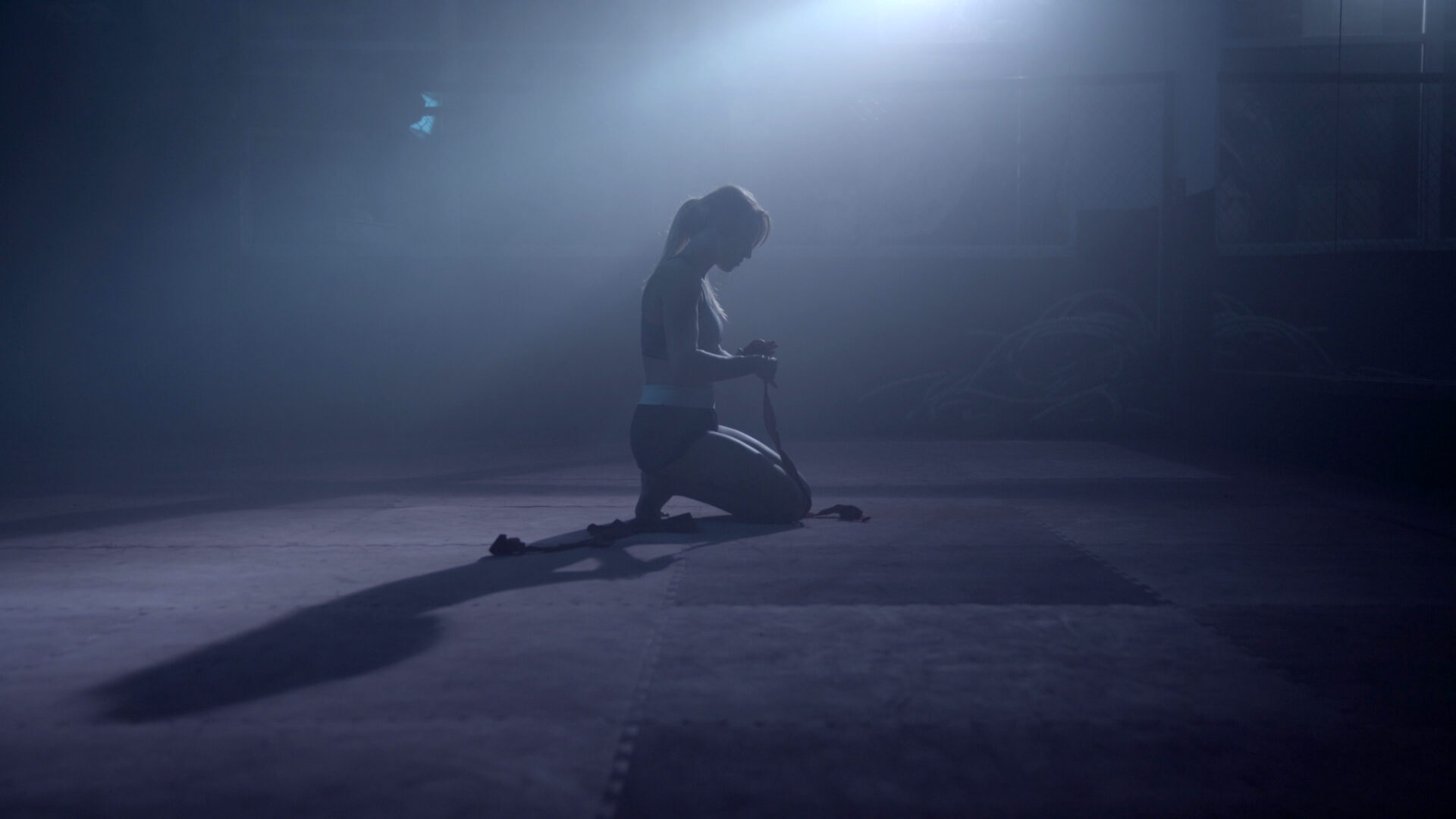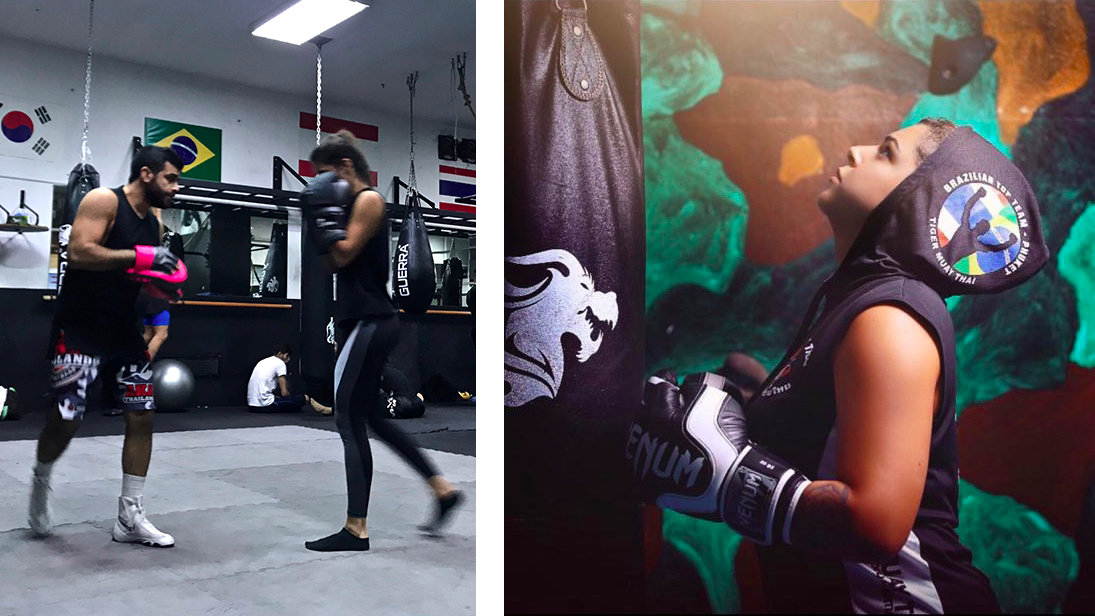On a balmy Tuesday night, to the booming beat of poppy house music, a group of young Lebanese men and women is using their legs and arms to hit each other with razor-sharp focus. Although only about a third of the group consist of women, they are clearly a force to be reckoned with at this Muay Thai [Thai boxing] training session.
Despite their increased popularity, many people still regard martial arts as masculine and thus seemingly incompatible with femininity, especially in Lebanese patriarchal society, where conceptions of what it means to be a woman are still quite traditional and rigid.
“Outside of the gym we are so feminine but when we train, we let out another side. We let out our anger,” says Denise Khouri Chalouhi, a biology and biochemistry graduate student.
Although, “like most people,” law student Yara Dahrouge was convinced boxing would make her physique more masculine, she is now quick to dispel that myth: “Through this training I got a new body shape, not like a man at all, but much stronger and more toned: I now have abs and muscles everywhere, even in my feet, it’s amazing.” And, she adds, unlike training at a gym, Thai boxing is so much fun that she actually looks forward to it even after a long, exhausting day of work.

Jena Lynn Karam, in Guillaume Chanaud’s “Out of the cage” documentary
Though the training sessions are mixed-gender, many women prefer to spar with other women, but not for the reasons you might expect: “Often, when you train with a guy, he thinks you’re going break if he kicks you a little harder, so I actually train better with another woman,” Chalouhi says.
More than the physicality of it all, the women at this Muay Thai training session emphasize the way in which their sport enables mental and personal growth.
“In Lebanon, people think women are not confident enough to face a man,” says Vanessa Rizk, a law school graduate, “but [Thai] boxing gave me more self-confidence and now I can face any man in any situation,” she says, “even in the courtroom.”
As reflected in this piece, Lebanon is about so much more than what you usually see in the media. L’Hôte Libanais is all about authenticity and we are therefore careful to avoid clichés by shedding light on people, places and experiences that are unique, off-the-beaten-path and often even unknown. We aim to go beyond what travelers usually expect from a visit to our marvellous multifaceted Mediterranean country by offering stays with locals and tailor-made experiences in Beirut and across the country.
Aside from helping women become physically stronger and build self-confidence martial arts can also be used as a way to relieve stress.
Boxing gave me more self-confidence and now I can face any man in any situation, even in the courtroom.
Vanessa Rizk
The women who attend the tri-weekly training sessions at Knockout MMA [Mixed Martial Arts] Academy express the relief of ridding themselves of their “stress, anger and anxiety” which stems from “everything in the country, the [lack of] electricity, the economy, it’s stressing all the Lebanese out,” Rizk says.“I’m a very angry person, I have a lot of energy that I need to let out and this is the place to do it,” Dahrouge says, adding that after every training session she emerges with a new, calmer state of mind, ready to face the world.

Muay Thai training at Knockout Gym (left) · Perla Abi Rached (right)
One wonders if the recent rise in women practicing martial arts has added a physical expression to the famed tenacity of Lebanese women.
Communications artist Jena Lynn Karam, who became the first and youngest woman in the Middle East to win a number of Mixed Martial Arts championships, believes this physical expression is already naturally activated on a daily basis: “Women already match their physical strength with their mental strength every single day in Lebanon,” says. “Maybe not in the cage, but they are fighting battles, not just because of the situation in general, but in the context of a patriarchal society.”
Though professional female MMA fighters are still rather scarce in the field, there is an upside to that, Karam says. “It makes us even stronger because we’re put up against more aggressive men, which in turn makes us more aggressive. This doesn’t mean we have to be manly, it just means that we’re put to more of a test.”
Former Thai Boxing child prodigy Perla Abi Rached, who started participating in tournaments at only eleven years old, is visibly proud of the fact that she helped champion martial arts in Lebanon. Winning her first Muay Thai tournament when she was fifteen, Abi Rached has now made it her mission to guide others. She took over her father’s gym at fifteen and began training the Internal Security Forces’ elite ‘Panthers brigade,’ consisting of both women and men, in self-defense, at eighteen.
Abi Rached agrees that the art of martial arts is about much more than physical strength: “It trains the spirit and mind before the body,” she says. “It helps you in life, in the way you deal with people and your problems.” Abi Rached also rejects the notion that femininity and martial arts are incompatible. In fact, she argues, they complement each other. “In a way, women have it in them to be better fighters because of their spirit. The soul is what fights, not the body. If you are strong from within, you can overcome anyone.”
Cover photo: Jena Lynn Karam, Guillaume Chanaud’s “Out of the cage” documentary, MMA Mena
Women are fighting battles every single day in Lebanon, not just because of the situation in general, but in the context of a patriarchal society.
Jena Lynn Karam